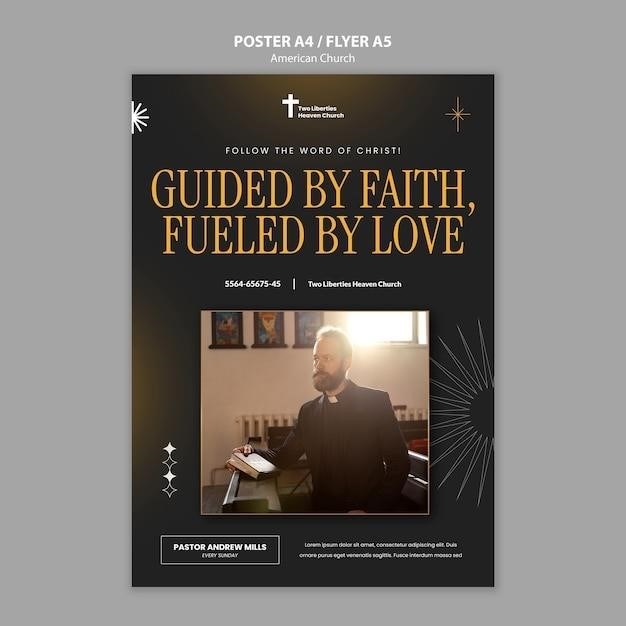oxford self guided walking tour
Oxford Self-Guided Walking Tour
Embark on a captivating exploration of Oxford’s rich history and architectural wonders with a self-guided walking tour. Immerse yourself in the city’s vibrant atmosphere, meandering through its charming streets and discovering hidden gems along the way. This leisurely adventure allows you to set your own pace and delve deeper into the fascinating stories that unfold at every turn.
Introduction
Oxford, a city steeped in history and academic brilliance, beckons travelers with its enchanting charm. From the hallowed halls of its ancient colleges to the bustling streets of its vibrant city center, Oxford offers a tapestry of experiences waiting to be explored. A self-guided walking tour presents an unparalleled opportunity to delve into the heart of this captivating city, immersing yourself in its rich heritage and architectural marvels at your own pace.
Imagine strolling through the cobbled lanes, where centuries of wisdom echo in the whispers of the wind. Picture yourself gazing upon iconic landmarks that have witnessed the passage of time, each stone whispering tales of bygone eras. A self-guided walking tour allows you to tailor your journey to your own interests, whether you seek to unravel the secrets of Oxford’s literary giants, discover the hidden beauty of its gardens, or simply soak in the city’s unique atmosphere.
With a self-guided walking tour, you become the master of your own itinerary, choosing your route, setting your pace, and lingering at points of interest that captivate your imagination. The city’s rich tapestry of history, architecture, and culture awaits your discovery, offering an unforgettable journey through time and a profound appreciation for the enduring legacy of Oxford.
Why Choose a Self-Guided Walking Tour?
In a city brimming with historical significance and architectural treasures, a self-guided walking tour offers a unique and rewarding way to explore Oxford’s captivating essence. Unlike a structured tour, a self-guided journey allows you to tailor your experience to your own interests, delve deeper into subjects that pique your curiosity, and savor the freedom of exploring at your own pace.
The beauty of a self-guided tour lies in its flexibility. You can linger at a particularly fascinating landmark, browse a quaint bookstore, or enjoy a leisurely coffee break at a charming café without feeling rushed. You can choose a route that aligns with your interests, whether it’s tracing the footsteps of literary giants, discovering hidden gardens, or immersing yourself in the city’s vibrant student culture.
A self-guided walking tour also allows you to engage with Oxford on a more personal level. You can savor the quietude of a secluded courtyard, listen to the echoes of history within the walls of an ancient college, or simply soak in the city’s unique atmosphere without the distractions of a large group. It’s a journey of discovery, where you can connect with the city’s soul and uncover its hidden gems at your own pace.
Benefits of a Self-Guided Walking Tour
A self-guided walking tour in Oxford presents a plethora of benefits, offering a unique and enriching way to experience the city’s captivating charm. By setting your own pace and charting your own course, you gain the freedom to delve deeper into the historical and cultural tapestry that weaves through Oxford’s every corner.
One of the most significant advantages is the ability to personalize your experience. You can choose to focus on specific areas of interest, whether it’s exploring the grand libraries, delving into the world of Harry Potter filming locations, or uncovering the city’s rich literary heritage. You can also customize your itinerary to accommodate your physical abilities and preferences, opting for shorter walks or longer explorations depending on your energy levels.
Furthermore, a self-guided tour allows you to engage with the city’s atmosphere at your own pace. You can linger at a particularly fascinating landmark, savor the quietude of a secluded courtyard, or simply soak in the city’s unique atmosphere without the distractions of a guided group. This freedom of movement enhances your ability to connect with Oxford’s essence, discovering hidden gems and absorbing the city’s unique character at your own pace.
Planning Your Oxford Self-Guided Walking Tour
Planning your Oxford self-guided walking tour is an exciting endeavor, allowing you to tailor the experience to your interests and preferences. Begin by considering the duration of your visit and the amount of time you wish to dedicate to exploring the city on foot. A well-structured plan will ensure you make the most of your time and maximize your enjoyment.
To ensure a smooth and enjoyable experience, consider the following steps⁚
- Choose your route⁚ Select a walking route that aligns with your interests and physical abilities. Consider whether you prefer a shorter, more focused walk or a longer exploration that encompasses multiple landmarks.
- Research and gather information⁚ Utilize online resources, guidebooks, and maps to gather information about the landmarks you wish to visit. Familiarize yourself with their history, significance, and opening hours.
- Pack accordingly⁚ Comfortable walking shoes, a map or GPS device, a bottle of water, and a light snack are essential items for a successful self-guided tour. Consider bringing a camera or your smartphone to capture memories of your journey.
- Plan your stops⁚ Decide on the specific attractions you wish to visit and allocate time accordingly. Be realistic about the amount of ground you can cover in a day.
- Factor in breaks⁚ Don’t forget to schedule breaks for refreshments, rest, or simply to soak in the atmosphere of Oxford’s charming streets.
Choosing a Route
Selecting the right route for your Oxford self-guided walking tour is key to creating a fulfilling and memorable experience. With so many captivating landmarks and historical sites to discover, the options are endless. Consider your interests, time constraints, and physical abilities when choosing a route that best suits your needs.
Here are some popular options to inspire your journey⁚
- The Classic Oxford Walk⁚ This route covers the heart of Oxford, encompassing iconic landmarks like Christ Church College, the Bodleian Library, and the Radcliffe Camera. It’s perfect for first-time visitors seeking a comprehensive introduction to the city’s historical and architectural treasures.
- The Harry Potter Walking Tour⁚ For fans of the beloved series, this route explores filming locations from the Harry Potter movies. See the grand staircase of Christ Church College, the Divinity School used as Hogwarts’ infirmary, and other magical sites that bring the wizarding world to life.
- The Hidden Heritage Walks⁚ Venture beyond the well-trodden paths and discover Oxford’s lesser-known gems. Explore the quirky Jericho area, delve into the history of St. Ebbes and St. Thomas, or uncover the secrets of the Oxford Waterways.
- The Oxford Canal Walk⁚ Enjoy a leisurely stroll along the scenic Oxford Canal, immersing yourself in the tranquil beauty of the city’s waterways. Discover charming pubs, quaint bridges, and picturesque views.
Remember, these are just suggestions to spark your imagination. Feel free to customize your route based on your interests and preferences. Use online resources, guidebooks, and maps to create a personalized walking tour that reflects your unique exploration style.
Essential Stops on Your Oxford Walking Tour
Oxford is brimming with architectural gems, historical landmarks, and cultural institutions that are sure to captivate your senses. No matter your interests, a self-guided walking tour of Oxford offers a unique opportunity to explore the city’s rich tapestry. Here are some essential stops that should be on your itinerary⁚
- Christ Church College⁚ Step into the hallowed halls of one of Oxford’s most prestigious colleges. Admire the grand dining hall used as Hogwarts’ Great Hall in the Harry Potter films, explore the cloisters, and soak in the atmosphere of academic excellence.
- The Bodleian Library⁚ A haven for scholars and book lovers, the Bodleian Library houses an impressive collection of ancient manuscripts and rare books. Explore its grand reading rooms, admire the intricate architecture, and feel the weight of history as you wander through its hallowed halls.
- The Radcliffe Camera⁚ This stunning circular building is a masterpiece of neoclassical architecture. Once a library, it now serves as a research center. Admire its striking façade, and consider joining a guided tour to uncover its hidden stories.
- The Ashmolean Museum⁚ Discover a world of art and artifacts at the Ashmolean Museum. Explore collections ranging from ancient Egyptian antiquities to European paintings, and witness the evolution of human creativity.
- The Covered Market⁚ This vibrant indoor market is a feast for the senses. Browse stalls overflowing with fresh produce, local crafts, and unique souvenirs. Indulge in a delicious bite to eat at one of the market’s many cafes and restaurants.
These stops offer a glimpse into Oxford’s rich history and cultural legacy. As you wander through its streets, allow yourself to be captivated by the stories that unfold around you.
Christ Church College
Step into the heart of Oxford’s academic grandeur at Christ Church College, a place steeped in history and renowned for its stunning architecture. Founded in 1546, this prestigious college holds a special place in the city’s landscape. As you walk through the grand entrance, you’ll immediately be struck by the impressive scale of the buildings. The grand dining hall, with its soaring vaulted ceiling and intricate wood carvings, is a sight to behold. This very hall was used as Hogwarts’ Great Hall in the Harry Potter films, making it a popular destination for fans of the beloved series.
Explore the college’s picturesque cloisters, a tranquil haven where students once strolled and scholars contemplated. Wander through the meticulously manicured gardens, a testament to the beauty and serenity that permeate this historic institution. Be sure to visit the Christ Church Cathedral, an architectural masterpiece that stands as a testament to the college’s rich religious heritage.
Immerse yourself in the history of this esteemed college, where countless influential figures have walked its halls. From renowned scientists and literary giants to politicians and artists, Christ Church College has shaped the course of history. Allow yourself to be captivated by the stories that unfold within its walls, and experience the unique atmosphere of one of Oxford’s most iconic institutions.
The Bodleian Library
Step into the hallowed halls of the Bodleian Library, a treasure trove of knowledge and a testament to Oxford’s enduring intellectual legacy. Founded in the 16th century, this magnificent library boasts a collection of over 12 million books, manuscripts, and other rare artifacts. Its grand architecture, with its imposing facade and intricate details, reflects the library’s enduring importance as a center of learning. The Bodleian Library is renowned for its breathtaking interiors, which are a feast for the eyes.
As you enter the library’s main reading room, you’ll be transported back in time by the towering bookshelves, the intricate wood carvings, and the hushed atmosphere. The library’s collection is a testament to the vastness of human knowledge. From ancient scrolls to modern-day texts, the Bodleian Library houses a diverse range of materials that have shaped the course of history.
Explore the library’s special collections, which include priceless manuscripts, rare books, and unique artifacts. Discover the stories behind these treasures, and marvel at the craftsmanship and artistry that have preserved them for generations. The Bodleian Library is not only a repository of knowledge but also a testament to the enduring power of the written word.
The Radcliffe Camera
Dominating the landscape of Oxford’s Radcliffe Square, the Radcliffe Camera stands as a magnificent architectural masterpiece, a testament to the city’s enduring fascination with knowledge and scholarship. This circular building, with its iconic dome and elegant facade, is a defining feature of the Oxford skyline, captivating visitors with its timeless beauty and intricate details. The Radcliffe Camera was originally conceived as a library, designed to house the vast collection of books amassed by the renowned physician and scholar, John Radcliffe.
Completed in the 18th century, the building’s unique design, inspired by the Pantheon in Rome, reflects the Enlightenment’s embrace of classical ideals. The dome, with its intricate carvings and soaring height, symbolizes the pursuit of knowledge and the boundless potential of the human mind. Today, the Radcliffe Camera is home to the Radcliffe Science Library, a repository of scientific literature that continues to serve the research needs of Oxford’s academics and students.
Beyond its scholarly purpose, the Radcliffe Camera is also a popular tourist destination, drawing visitors from around the world who are captivated by its architectural grandeur and the stories it tells. Its graceful lines and harmonious proportions make it a favorite subject for photographers, capturing the essence of Oxford’s intellectual spirit. A visit to the Radcliffe Camera is a must for any Oxford walking tour, offering a glimpse into the city’s past and a reminder of the enduring power of knowledge.
The Ashmolean Museum
Nestled in the heart of Oxford, the Ashmolean Museum stands as a testament to the city’s enduring fascination with art, archaeology, and the history of human civilization. Established in 1683, it proudly claims the title of the world’s first university museum, a reflection of Oxford’s long-standing dedication to scholarship and the pursuit of knowledge. The museum’s origins can be traced back to the bequest of Elias Ashmole, an English antiquarian and scholar, who donated his collection of curiosities and artifacts to the University of Oxford.
Over the centuries, the Ashmolean Museum has expanded its collection, encompassing a vast array of treasures from around the globe. From ancient Egyptian mummies to exquisite Renaissance paintings, from intricate Roman mosaics to exquisite Chinese porcelain, the museum’s diverse holdings offer a captivating journey through time and across cultures. The museum’s galleries are thoughtfully curated, providing a comprehensive overview of human creativity and the evolution of artistic expression.
Visitors can explore the museum’s permanent collection, delve into temporary exhibitions showcasing specific themes or artists, and engage in interactive displays that bring the museum’s treasures to life. The Ashmolean Museum is a treasure trove of history, art, and culture, offering a unique window into the past and inspiring a deeper appreciation for the richness and diversity of human civilization.
The Covered Market
Step into a vibrant world of aromas, colors, and local delights at Oxford’s Covered Market, a bustling hub of activity that has been a cherished part of the city’s fabric for over 150 years. This historic market, housed under a charming Victorian-era roof, is a true testament to the enduring spirit of commerce and community that has thrived in Oxford for centuries. The market’s origins can be traced back to the 18th century, when a series of open-air stalls lined the streets of Oxford, offering a diverse array of goods and services to the city’s residents.
In 1891, the market found a permanent home under a grand iron and glass structure, creating a sheltered haven for vendors and shoppers alike. The Covered Market quickly became a central gathering place, where locals and visitors alike mingled, browsed stalls, and savored the flavors of fresh produce, artisan crafts, and delectable treats. Today, the market boasts a vibrant mix of over 70 independent businesses, each offering a unique selection of goods and services.
From fresh flowers and locally sourced produce to handcrafted jewelry and vintage clothing, the market caters to a wide range of tastes and interests. Whether you’re searching for a unique souvenir, a delicious lunch, or simply a chance to experience the authentic pulse of Oxford, the Covered Market promises a captivating journey through the city’s vibrant heart.
Tips for Enjoying Your Oxford Walking Tour
To make the most of your self-guided walking tour of Oxford, consider these tips to enhance your experience and ensure a memorable journey through the city’s historic streets. Pack comfortable shoes, as you’ll be covering some ground exploring the city’s many attractions. A lightweight backpack is also a good idea for carrying essentials like water, snacks, and a camera to capture the beauty of Oxford’s architecture.

To make the most of your time, plan your route beforehand, considering the attractions you want to see and the time available. Don’t be afraid to deviate from the planned route if something catches your eye or if you stumble upon a hidden gem. Embrace the spirit of exploration and allow yourself to be captivated by the charm of Oxford’s unexpected corners.
Remember that Oxford is a city steeped in history, so be sure to bring a guidebook or download an app to provide context and insights into the places you’ll be visiting. Engage with the city’s rich past by learning about its fascinating history, legendary figures, and architectural wonders. Above all, relax, soak in the atmosphere, and enjoy the unique charm of Oxford at your own pace.


















